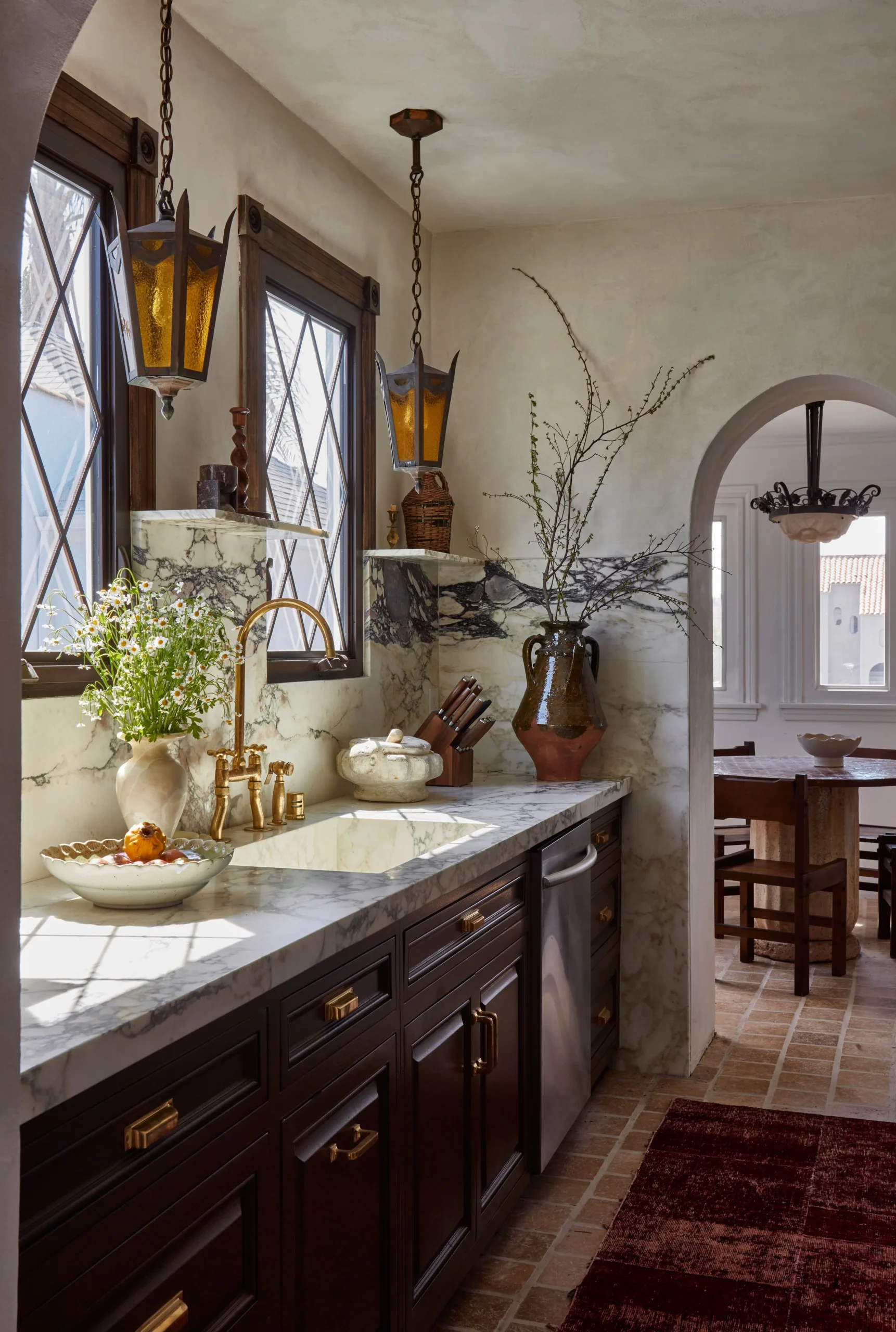Everything You Need To Know About Marble Countertops (Pros, Cons, Care & Maintenance)
·


Countertop Specs: Calacatta Monet Marble
Marble has been and will continue to be one of the most sought after stone countertop materials. It’s beauty is unmatched and the value that it adds both financially and aesthetically to a home can’t be ignored. It effortlessly belongs in both modern and historic homes and if you ask any designer, they’ll rave about its beauty, versatility, and timeless qualities. But before you install marble in your kitchen or bathroom, you should know both the good and the bad that come with marble countertops. After all, it is considered a high maintenance stone.
Today I’m sharing everything you should know about marble countertops – the pros, the cons, the care, and the maintenance requirements.

Countertop Specs: Calacatta Monet Marble

Marble Countertop Specs
100% NATURAL: Marble is a natural stone and each slab is unique.
HEAT RESISTANCE: Marble is heat resistant, however it is still recommended to use trivets under hot pots and pans.
STAINS: Marble is a porous stone, making stains one of the biggest concerns for homeowners. Marble is particularly susceptible to stains from oil and red foods or beverages, such as red wine, tomatoes, and juice. The best way to prevent stains on marble is to clean spills up immediately. But sealants are an essential back up plan as they delay how quickly marble stains. “Ward off stains by applying an impregnating sealer that fills the pores just below the stone’s surface to slow the absorption of liquids, allowing more time to clean up spills.” –Stone Interiors.
SEALING: Sealing marble is essential to protect it from stains. The frequency of reapplication varies based on the sealant’s guidelines. Some sealants may require reapplication every 6 to 12 months, while others last between 3 to 5 years. Roth Restoration recommends testing to see if your stone needs sealing by putting a few drops of water on the countertop and letting them sit. If it leaves a dark spot, it has soaked into the stone and needs to be sealed. Ashley, owner of The Gold Hive, recommends this sealer and has a great tutorial on how to apply it.
ETCHING: Another common concern with marble is etching. Etching is a dull spot on the stone that occurs when acidic food or beverages come into contact with marble. Tomatoes, vinegar, citrus fruits, and alcohol can all cause etching. Unfortunately, sealers do not prevent etching. One way to reduce the visibility of etches is to select a honed finish opposed to a polished finish. Etches are much less obvious on honed marble. While some view etching as patina, others view it as a flaw. If you find that the etches are becoming bothersome, you can have your marble professionally refinished or you can apply this etch remover yourself.
CLEANING: Mild soap and water is recommended to clean marble.
VALUE ADD: Marble is widely regarded as a luxury stone and is highly sought after among homeowners. It’s a great way to increase the value of your home.

Quartz Countertops: Everything You Should Know

Quartzite Counters: Pros, Cons, & Care Needs

Granite Countertops: The Pros, Cons, Care, & Maintenance

Soapstone Counters: Here’s Everything You Should Know
Where behind the scenes, exclusive advice, and candid conversations are sent straight to your inbox every week.

